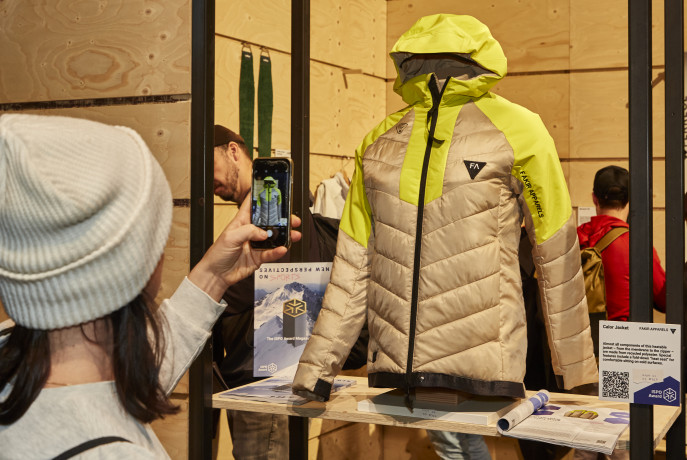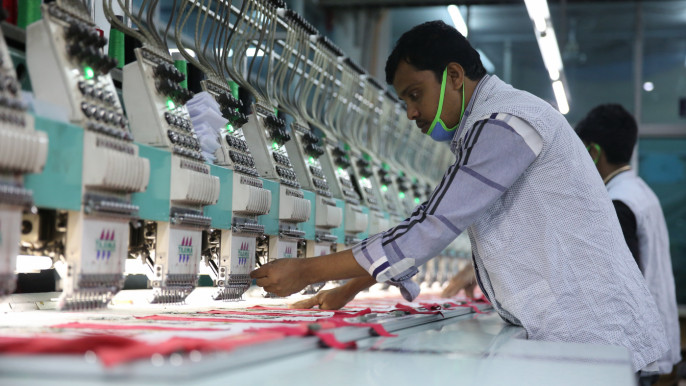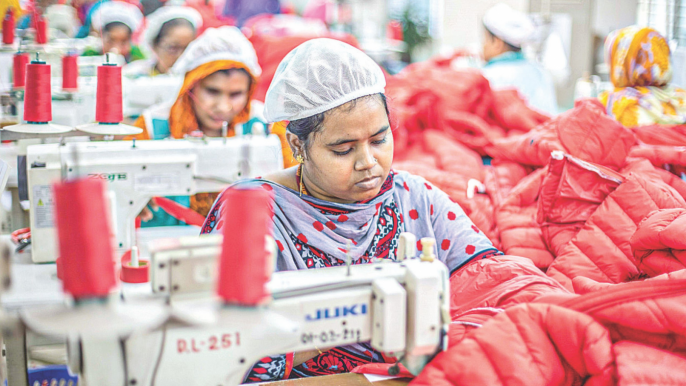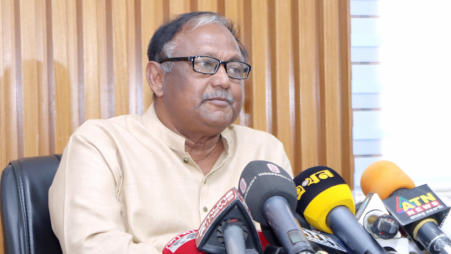For the first time, Bangladesh seeks foreign loans to support Rohingyas
In the face of diminishing funds from international sources, Bangladesh is actively seeking a billion-dollar aid package from the World Bank and the Asian Development Bank (ADB) to support socio-economic development efforts for the Rohingya population and the affected host communities in the country.
The package, which includes $535 million in loans and $465 million in grants, aims to address the challenges faced by the forcibly displaced Myanmar nationals and mitigate the impact of their presence on local communities.
Officials from the Economic Relations Division (ERD) under the finance ministry told The Business Standard that negotiations with the two lenders are underway to finalise the assistance.
This is the first time since the 2017 Rohingya influx that Bangladesh is seeking loans from global lenders to support the Rohingyas.
Previously, the country only accepted foreign donations as humanitarian aid. The infrastructure construction and socio-economic development projects for the host community also depended on donations. But the inflow of foreign funds has declined and the allocation has come down to $8 per person per month now from the previous $12 for people above six years. Children up to six years old get food through a separate programme.
Economists and experts voiced concerns that Bangladesh’s existing challenges with foreign loan repayments will worsen due to the additional debt burden from these new loans.
Amid the lack of necessary grants within the Joint Response Plan to adequately address the Rohingya crisis, they suggested a two-pronged approach: maximising humanitarian aid collection and focusing efforts on repatriation.
The plan is developed yearly and is an annual fundraising document that articulates the shared vision of how the humanitarian community will respond to the assessed and expressed needs of Rohingya and affected host communities.
The influx of Rohingyas into Bangladesh has placed a strain on the country’s resources and infrastructure, particularly in Cox’s Bazar, where the majority of them reside.
Loan necessary as grants shrink
The decision to seek loans from international lenders was made during a meeting held at the Prime Minister’s Office towards the end of November.
According to the minutes of the meeting, chaired by Principal Secretary of the Prime Minister’s Office Md Tofazzel Hossain Miah, the World Bank has agreed to pay $700 million including $315 million in grants and $385 million in loans. In addition, the ADB has assured to pay a total of $300 million with a loan of $150 million and a grant of the same amount.
At the meeting, ERD Secretary Md Shahriar Kader Siddiky said it has become necessary for the government to secure foreign loans due to the depletion of grant resources dedicated to Rohingya development projects.
The World Bank has allocated $2.4 billion for three years under the International Development Association-20 initiative of the Window for Host Communities and Refugees. Bangladesh could get a share of $800 million a year, he said.
The World Bank initially offered loans from this window, but after negotiations, it agreed to give $315 million in grants and $385 million in loans, the secretary said.
The World Bank’s aid will be used to strengthen disaster and climate change resilience, mitigate gender-based violence, and provide shelter for both the Rohingya and local host communities.
Additionally, the ADB aid will be used for critical infrastructure projects, including road development, clean water supply, waste management, electrification, and improved healthcare services.
During the meeting, the ERD was instructed to expedite discussions With the ADB and the World Bank.
Additionally, relevant ministries and departments were tasked with developing preliminary project proposals to facilitate the receipt of foreign aid.
Fresh loans to worsen debt pressure
Dr Selim Raihan, an economics professor at Dhaka University, warned that taking foreign loans to support the Rohingya population could significantly increase Bangladesh’s future debt burden.
He highlighted the insufficient funding received under the Joint Response Plan, with only 45% of the requested $876 million secured. This lack of donor support, coupled with economic pressures, underscores the urgency of finding sustainable solutions for the Rohingya crisis.
Despite restrictions on their employment, Rohingyas are engaging in informal work, potentially contributing to local unemployment concerns. This underscores the urgency of prioritising their repatriation, he said.
However, if the repatriation process is prolonged, efforts should be made to enhance their productivity through skills development and training initiatives, the professor said.
Works to be done with the aid money
According to Planning Commission sources, two project proposals have already been sent by the Directorate General of Health Services to the Socio-Economic Infrastructure Division of the Planning Commission following the directives of the PMO meeting.
The government expects the entire Tk1,045 crore expenditure of the two projects from the World Bank. Of this, Tk605 crore will be spent on a project for strengthening health care facilities for Rohingyas in Cox’s Bazar and Noakhali districts and Tk440 crore will be spent on the project for strengthening health care facilities for host communities in Cox’s Bazar and Noakhali districts.
If given final approval, the projects will be implemented between July 2024 and June 2025.
The Local Government Division will work on the construction of access and connecting roads, widening and renovation of roads, waste management infrastructure, a groundwater reservoir in Teknaf, a jetty connecting road at Hatiya for water supply and transportation to Bhasan Char and the development of adjoining markets.
The Directorate General of Health Services will set up a community clinic in Bhasan Char, train Rohingyas to serve in the clinic and arrange a water ambulance.
The Medical Education and Family Welfare Division will be responsible for the implementation of a project to increase awareness of birth control among the Rohingyas in addition to taking measures for nursing training.
The Ministry of Primary and Mass Education will implement projects for the renovation of dilapidated primary schools.
The Ministry of Disaster Management and Relief will construct dirt roads and HBB (herring-bone-bond) roads in Rohingya camps.
The Ministry of Youth and Sports will organise various trainings to improve the skills of the Rohingyas as well as the host community.
Apart from that, the construction of a police camp to maintain law and order and the construction of new houses in the Bhasan Char shelter will be done under another project.
Impact of Rohingyas on locals, environment
Concerns were raised during the meeting regarding the environmental impact of the Rohingya presence, citing potential damage to climate, biodiversity, and forests, with consequences for all of Bangladesh.
Additionally, some participants expressed concerns about the potential job displacement of the local population due to the presence of the Rohingyas.
In response to this challenge, one suggestion proposed providing small loans to locals to support their entrepreneurial endeavours and boost employment opportunities.
A decision was made in the meeting to implement separate project initiatives catering specifically to the needs of the Rohingya and the local population. Additionally, any project proposals submitted for the Rohingya population must be limited to a one-year timeframe. News Sources : tbsnews























